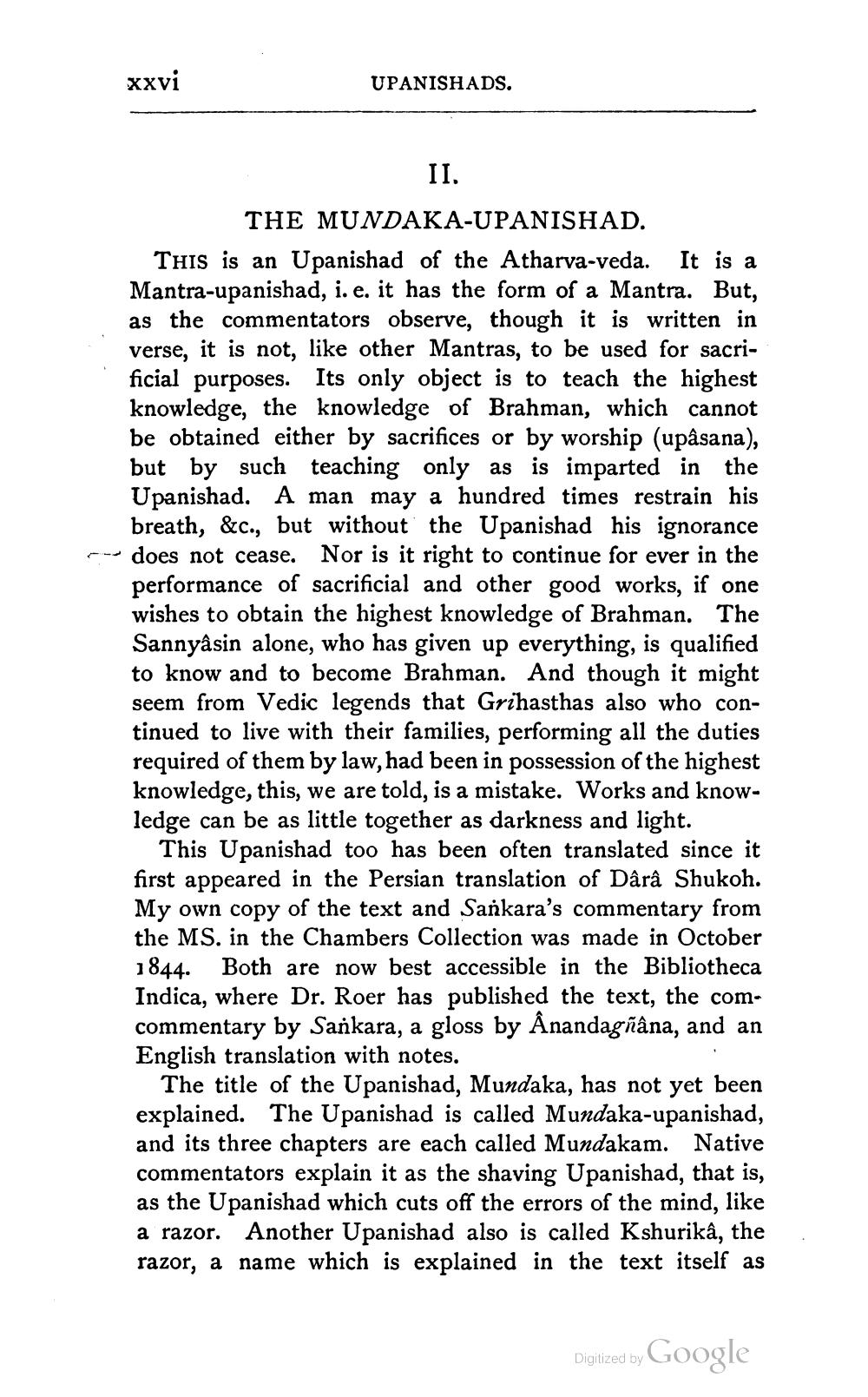________________
xxvi
UPANISHADS.
II.
THE MUNDAKA-UPANISHAD. This is an Upanishad of the Atharva-veda. It is a Mantra-upanishad, i.e. it has the form of a Mantra. But, as the commentators observe, though it is written in verse, it is not, like other Mantras, to be used for sacrificial purposes. Its only object is to teach the highest knowledge, the knowledge of Brahman, which cannot be obtained either by sacrifices or by worship (upâsana), but by such teaching only as is imparted in the Upanishad. A man may a hundred times restrain his breath, &c., but without the Upanishad his ignorance - does not cease. Nor is it right to continue for ever in the
performance of sacrificial and other good works, if one wishes to obtain the highest knowledge of Brahman. The Sannyâsin alone, who has given up everything, is qualified to know and to become Brahman. And though it might seem from Vedic legends that Grihasthas also who continued to live with their families, performing all the duties required of them by law, had been in possession of the highest knowledge, this, we are told, is a mistake. Works and knowledge can be as little together as darkness and light.
This Upanishad too has been often translated since it first appeared in the Persian translation of Dârâ Shukoh. My own copy of the text and Sankara's commentary from the MS. in the Chambers Collection was made in October 1844. Both are now best accessible in the Bibliotheca Indica, where Dr. Roer has published the text, the comcommentary by Sankara, a gloss by Anandagñâna, and an English translation with notes.
The title of the Upanishad, Mundaka, has not yet been explained. The Upanishad is called Mundaka-upanishad, and its three chapters are each called Mundakam. Native commentators explain it as the shaving Upanishad, that is, as the Upanishad which cuts off the errors of the mind, like a razor. Another Upanishad also is called Kshurikâ, the razor, a name which is explained in the text itself as
Digitized by Google




